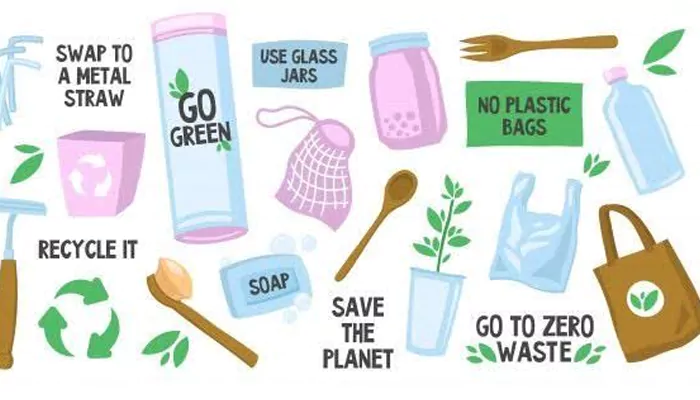COP16 Kicks off: Key Agendas and India's Critical Role in the Climate Debate
- Soham Halder
- 1 year ago
- 5 minutes read

Officials from nearly 200 countries convened in the CoP16 biodiversity summit in Colombia.
It is the first biodiversity-centered meet since 2022, when countries vouched for a historic deal to prevent the destruction of ecosystems. The 2-week long 16th Conference of the Parties to the Convention on Biological Diversity (CBD-COP 16) has started in Cali, Colombia with a broader aim of saving the nature. In this article, we will discuss about main agendas in focus for this summit and India's crucial role in it.
Main Agendas of COP16:
Delegates will discuss effective strategies to prevent rapid destruction of the nature and fulfil the pledge made in the 2022 accord.
Biodiversity loss is occurring at alarming rates around the world, and organized criminal networks are exploiting our planet and its resources.#COP16 presents a critical opportunity to forge stronger partnerships, for more comprehensive, impactful and sustainable solutions. pic.twitter.com/5A6HA6IywP
— Ghada Fathi Waly (@GhadaFathiWaly) October 21, 2024
Credit - X/@GhadaFathiWaly
Country-wise Planning: After 2 years of establishing the historic framework, nations will provide detailed plans to achieve globally agreed aims. These goals include assigning 30% of land conservation, reducing nature-harming subsidies, and companies to disclose their broader impact on the environmental. Delegates will review the submissions about biodiversity strategies to analyze the overall progress since COP15 in 2022 and distinguish future priorities.
“India has updated its national biodiversity strategy and action plan which existed has been updated as per the KMGBF framework, and it has been done in sync with the whole of government or the whole of society approach. The document has been ready. Other than this, there are national biodiversity targets which have been uploaded on the portal and we will try to release them during the COP,” said a senior official attending COP16 in Colombia.
No element is more vital to food production than the diversity of plants, animals, microbes and their environment.@FAO is at #COP16Colombia. Learn how we contribute to the conservation, restoration and sustainable use of biodiversity.⬇️https://t.co/MWDHyNfXT0#PeaceWithNature pic.twitter.com/EV8LwwIykb
— Food and Agriculture Organization (@FAO) October 21, 2024
Credit - X/@FAO
Resolution of Financing Issues: During COP15, wealthy countries pledged at least “$20 billion annually starting in 2025” to support developing nations in achieving their objectives, and this target should reach $30 billion by 2030. However, these promises have not been fulfilled yet. As per Organisation for Economic Co-operation and Development (OECD) report: “governments contributed around $15.4 billion to biodiversity efforts in 2022, up from $11.4 billion in 2021.”
In the ongoing COP16 summit, governments are expected to announce additional funding initiatives as well as new mechanisms to aid nature conservation.
Mitigating Climate Change & Biodiversity Loss: Loss of Biodiversity and climate change have never been discussed together in such a big conference. Now, global leaders came together to address these alarming issues as both of them are closely intertwined.
🌾 #Naturepositivesolutions are essential for #sustainablefoodsystems and local economies. At #COP16Colombia we will share success stories ranging from intercropping in #Kenya 🌳 specialty mangoes in #India 🥭 and small tubers in #Colombia. 🥔 Join us! 👉https://t.co/tDPbwdPyvh pic.twitter.com/dl9MO0rmDa
— Alliance of Bioversity International and CIAT (@BiovIntCIAT_eng) October 18, 2024
Credit - X/@BiovIntCIAT_eng
India in COP16:
The 23 aims submitted by India encompass 30% of land area conservation (“30” by “30” goal); participation, justice, and rights for indigenous peoples as well as local communities,women and youth. According to the report, sustainable consumption choices are enabled, and food waste reduced by half; multiple values of biodiversity are integrated into decision-making at all levels; fair and equitable sharing of benefits from genetic resources, digital sequence information and associated traditional knowledge; pollution reduced, halving nutrient loss and pesticide risk; reduce rates of introduction and establishment of invasive alien species by 50%; all areas are planned or managed to reduce loss of areas of high biodiversity importance.
“The 2030 plan is international; it’s not any individual country’s liability. In 1974, we had 9 parks across 9,000 square kilometres. We have increased it up to 58,000 square kilometres. In 30 years, we have increased the number of our elephant reserves to 33,” union environment, forest and climate change (MoEFCC) minister Bhupendra Yadav told in a press conference.
New Delhi: Union Minister of State for Environment, Forest and Climate Change and External Affairs Kirti Vardhan Singh met the Vice Minister of Foreign Affairs of Colombia Jorge Rojas Rodríguez
— All India Radio News (@airnewsalerts) October 16, 2024
Both leaders discussed the upcoming #COP16 of the Convention on Biodiversity to be… pic.twitter.com/s9fEwN8svj
Credit - X/@airnewsalerts
“India is already increasing its protected areas. We have 1.7 lakh sqkm of protected area, 57 tiger reserves, and 33 elephant reserves,” added the union minister.
Actions to reach these goals should be implemented soon consistently aligning with the Convention on Biological Diversity and its Protocols. "COP16 is an opportunity to re-energize and remind everybody of their commitments two years ago and start to course correct if we're going to get anywhere close to 2030 targets being achieved," said Gavin Edwards, director of the nonprofit Nature Positive.












